4 Simple, But Fatal Mistakes That Can Derail Your Estate Plan
4 Simple, But Fatal Mistakes That Can Derail Your Estate Plan
If you’re tempted to use a DIY estate planning service or have already created a plan you aren’t 100% confident in, be sure to read how these four simple mistakes can derail your estate plan and leave your family with an expensive mess.
We regularly meet with clients who ask us to review an estate plan that they created online or with an attorney who isn’t experienced in estate planning. Initially, these clients think they’ve found a better deal and done things wisely, through a faster and cheaper estate planning solution. In the end, once the plan is signed and done, they’re often left wondering whether this “cheap” plan will accomplish their goals, if they’ve done it correctly, covered all their bases, or if it will leave their family with a big mess instead. When I review these DIY estate plans, we usually discover they were poorly designed with simple, but devastating mistakes. A majority of the time, they weren’t signed or funded properly and their “plan” isn’t worth the paper it was written on. What’s more, these clients wouldn’t have even known these mistakes were made if they hadn’t met with us!
While it might seem simple enough to put together a trust online or have your tax or real estate attorney prepare your will, it can be very difficult to create an estate plan that works and implements the best options available to you without using an attorney with the proper training and experience. What might seem like minor details to the inexperienced eye can often have major effects on your plan’s final outcome.
More often than not, clients who meet with us to review a DIY plan find out that instead of saving money on their estate plan, they’ve actually cost themselves much more by buying a plan that is riddled with mistakes. And if these mistakes aren’t caught by you while you’re alive and well, your loved ones will be the ones paying the price to resolve them after you’re gone.
Here are the four biggest mistakes I see when reviewing DIY and low-cost estate plans:
1) Signing Properly & Funding Your Estate Plan
Every state has very specific requirements on how various estate planning legal documents need to be signed. For Instance, in Illinois a Will must be signed in the presence of two credible witnesses to be valid (755 ILCS 5/4-3). Powers of Attorney must be signed in the presence of a notary and witnessed by at least one individual (755 ILCS 45/3-3). Every state has a very particular way that a Will, Trust, Power of Attorney, Living Will and Health Care Directives must be signed to even merely be recognized as a legally valid document.
My own friends and family have shown me their DIY estate plan documents, which weren’t signed correctly and therefore, weren’t legally valid. They never would have known if I hadn’t told them and when their family would’ve needed to rely on these documents most, they wouldn’t have done a damn thing for them. When I told them, they got really upset and simply said that the “website,” never told them that they needed to sign in a particular way. The reason is because every state has different requirements, which may not have been accounted for on a national DIY estate planning web form. That’s why the first thing I look for when reviewing a DIY plan is to see if it was signed correctly.
If they’ve established a trust, the second thing I ask my friends, family, or clients if they’ve have changed their bank accounts, and assets to be owned in the name of the trust. Typically, they don't know what this means and seem confused. So, I ask if their monthly statements have their name, or the name of the trust on them? More often than not, they tell me that their name is on their statements, and in turn, I explain that they are not owned by the trust and will have to go through probate – thereby defeating the entire point of why they created the trust and rendering it a worthless document that isn’t going to help their family. Even when my friends, family and clients used an attorney, this seems to be really common. They tell me the attorney didn’t explain this to them, but then I always find the “instructions” in the back of their estate planning binder. When I show them the instructions which clearly explain what they should have done, they tell me that they never knew and simply didn’t read them, so they never “funded” their trust properly.
These two simple mistakes are easily preventable. That is why we pride ourselves on taking the little bit of extra time with our clients to educate and empower them during the estate planning process, so they understand what they are doing, why they are doing it, and how to successfully implement and manage their estate plan. This little bit of extra time to educate our clients and demystify the complexities of estate planning is imperative and necessary to ensure their investment of time and money into creating a plan will make it worthwhile and ensure it will work for their family and accomplish their goals when their family needs it most. That’s also why we have a follow-up meeting after our clients sign their estate plan, to check up on them to ensure they’re “funding” it properly and then meet with them every 3 years, for FREE, to ensure their plan is being managed correctly.
2) Leaving Assets Outright to Loved Ones
One of the simplest mistakes you can make in estate planning is distributing your assets directly to your beneficiaries upon your death. This is a bad idea for several reasons:
● The assets have no protection from your beneficiaries’ creditors once they leave your estate;
● The money can be squandered and used however the beneficiary wants;
● If the beneficiary is a minor, a court will decide who manages the assets and how they’ll be used; and
● Your beneficiaries will most likely handle these assets incorrectly, so that they will be lost to their spouse if they get divorced.
Instead of gifting your assets directly to your beneficiaries, distribute your assets into a trust for the beneficiaries' benefit. When creating a trust, you can choose who will manage your assets for your beneficiaries while also sheltering those assets from your beneficiaries’ creditors or their own poor money-management skills.
Setting up a trust to hold your assets is especially important if you have minor children. Minors cannot own money on their own, which means they can’t receive any assets from you directly on your death. Instead, a court will need to appoint a guardian or conservator to manage the assets you leave for your children. There’s a high chance that the person the court appoints will not be the person you would have chosen yourself. Even worse, if the court appoints a professional guardian, your assets will be reduced by expensive administration fees and unnecessary court involvement. Not to mention, that your family will then have to pay an attorney to file an accounting of your money each year with the court to evidence how your children’s money was spent until they turn 18. On top of it all, your money and your kids' inheritance is then in the public record and can be found by anyone who may be interested in what your 18 year-old will get.
Speaking of and most importantly, your children will get ALL your assets and their inheritance outright when they turn 18, but this only puts the assets at risk. Few young adults have the maturity, experience, or knowledge to manage a large sum of money responsibly so that it can grow and support them over time. Even if your adult child is responsible or has guidance from someone you trust, those assets are still susceptible to any lawsuits, divorces, and unforeseen financial troubles your child may experience in the future. Not to mention, what 18 year old do you know that spends money wisely - I wouldn't want my life savings and hard earned money to be managed by an 18 year old.
Instead of leaving assets outright to a minor or young adult, leaving your assets in a trust, established for the child’s benefit, allows you to choose the person who will manage the assets you leave for them, helps the assets grow through careful financial management, and protects the assets from your child’s lack of experience and future risk. Instead, you get to choose the age when they will receive their inheritance, or become the co-trustee or sole trustee of their own trust.
3) Not Creating a Lifetime Asset Protection Trust
Creating a trust to hold your assets can provide years of asset protection for your loved ones, but that protection only exists so long as the assets are held in the name of the trust. The second big mistake I see are trusts that direct the assets to be taken out of the trust’s protection and given to your child or beneficiary at a specific age. You might not see the problem with this scenario at first, you trust your kids and expect them to act responsibly when you’re gone. Yet, even if your child or beneficiary is mature enough to manage a sum of money, doing this still leaves those assets susceptible to future legal and financial risks.
Instead, everyone should consider creating a Lifetime Asset Protection Trust to hold their beneficiaries’ assets indefinitely. This gives the assets lifelong protection while still providing financial support to your beneficiaries.
Unfortunately, most lawyers do not understand how to use trusts to establish this kind of protection for the inheritance you are leaving behind, and some may even try to dissuade you from using a trust at all unless you have a very large estate. Even if you are leaving behind a small amount of assets, protecting those assets and helping them grow can make a huge difference in the future well-being of your loved ones.
4) Forgetting to Update Beneficiary Designations
This final mistake is so simple, yet easily forgotten when creating a DIY plan or using an inexperienced estate planner: forgetting to update your insurance policies and retirement beneficiary designations so they match your estate plan. While your will and trust are important parts of your estate plan, it’s vital to strategically update your insurance policies and retirement accounts to pay out to your spouse and beneficiaries in the best way possible to take advantage of various tax and financial laws to maximize the amount of money they receive. Especially after the passage of the Secure Act in 2019 and Secure Act 2.0 in late 2022 - no need to bore you any further with the specifics of the law, but if you'd like to nerd out with me and discuss further, feel free to reach out.
Back to the point....beyond naming your spouse as the direct beneficiary, leaving the names of your children on your insurance and retirement accounts instead of the name of your trust ensures the largest assets you own won’t be a part of the plan you just created. Instead, the assets will be distributed directly to your children as listed on the account, to do with however they want, even if you had other plans for protecting the funds under your trust. We’ve even seen cases where the beneficiaries named on a life insurance or retirement account are so outdated that the person named on the account isn’t even a part of the client’s life anymore! The worst example I’ve seen play out far too many times, is a person’s ex-spouse receiving their life insurance or retirement account because they simply didn’t update their beneficiaries after a divorce.
Estate Planning That Works
In order to make sure your estate plan truly works the way you intend it to, it’s essential that all of your assets are reviewed and accounted for to make sure that any accounts you have reflect the name of your trust or other estate plan method. That’s why at Family Wealth & Legacy Legal Solutions (FWLLS), we always create an inventory of your assets and follow up with you to make sure your assets are updated into the name of your trust. We can even update your assets for you, so you can rest assured that every piece of your plan works together.
If you're thinking about using a DIY estate planning service or had an estate plan created by an attorney in a different practice area, it's crucial to check your plan for these four simple, but fatal mistakes that will jeopardize your estate plan. Otherwise, your “plan” might end up causing more problems than it solves, leaving your family in court and conflict after you’re gone. Trust me, having legal documents that fail often create more problems and in the end, cost your family much more than if you simply didn't have anything in place at all. That's why it is so crucial to work with someone who is experienced and will take the time to educate you on this area of the law and who will stay in touch with you over the life of "your plan" to ensure that it works for your family in the way you intended.
That’s why we offer to review your current estate plan during a Family Wealth & Legacy Strategy Session™. During this session, you'll have the opportunity to discuss your concerns, learn how your current plan will (or won’t) work for you, and if you don’t feel confident in your current estate plan, we’ll create a new comprehensive plan for you that will provide the protection and support your family needs for years to come.
Don’t let a simple estate planning mistake derail your plans for your family. Give our office a call to schedule your Family Wealth & Legacy Strategy Session™ right away. Your loved ones will thank you for it!
This article is a service of Family Wealth & Legacy Legal Solutions (FWLLS). We do not just draft documents; we ensure you make educated, informed and empowered decisions for yourself and the people you love. That's why we offer a Family Wealth & Legacy Strategy Session™, during which you will get educated and begin to prepare to avoid life’s most common legal problems and get a plan in place to make the best possible choices for the people you love. You can begin by calling our office today to schedule a Family Wealth & Legacy Strategy Session and mention this article to find out how to get this $750 session at a significantly discounted rate, or even for free.
Contact Us
We will get back to you as soon as possible.
Please try again later.
Contact Us
We will get back to you as soon as possible.
Please try again later.


© 2023 Biederstadt Law. All Rights Reserved.











